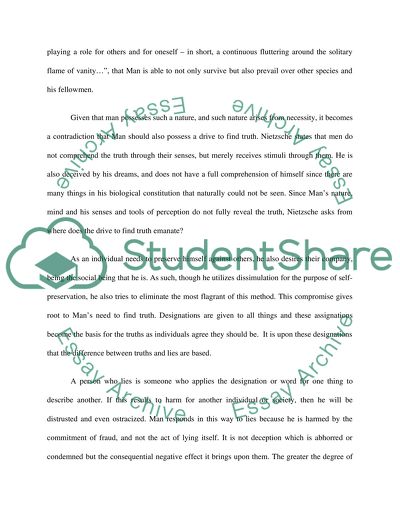Cite this document
(“Nietzche's Philosophical Understanding of Truth Essay”, n.d.)
Retrieved from https://studentshare.org/philosophy/1510478-nietzches-philosophical-understanding-of-truth
Retrieved from https://studentshare.org/philosophy/1510478-nietzches-philosophical-understanding-of-truth
(Nietzche'S Philosophical Understanding of Truth Essay)
https://studentshare.org/philosophy/1510478-nietzches-philosophical-understanding-of-truth.
https://studentshare.org/philosophy/1510478-nietzches-philosophical-understanding-of-truth.
“Nietzche'S Philosophical Understanding of Truth Essay”, n.d. https://studentshare.org/philosophy/1510478-nietzches-philosophical-understanding-of-truth.


